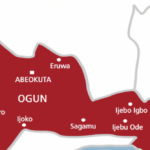“Health is the right of every Nigerian, government needs to set aside funds that will be used to cater for vulnerable and the less privileged in the country.” These are the words of the representative of the Nigeria Labour Congress (NLC) president, Dr Peter Ozu Eson, during a presidential summit on health recently, in Abuja.
Health insurance that covers every Nigerian is a speck of dust in the collective eye, but never before has it come close as it did in the first week of March.
Days of talks and technical sessions came to a head at a presidential summit on universal health coverage.
The UHC mandate for Nigeria aims to ensure up to 30% of Nigerians have some form of health cover by 2015.
President Goodluck Jonathan recommended at the end of the conference that all stakeholders should work towards instituting mandatory health insurance in Nigeria with contributions from income earners (formal and informal) and special funds to cover the poor.
He committed to an increase in budgetary allocation to health at all levels and establishing a joint mechanism to monitor and evaluate progress of universal health coverage efforts in Nigeria.
But donor agencies believe that several issues need to be addressed such as providing sufficient, well trained motivated staff with adequate resources for promotion, prevention, diagnosis, treatment and professional development and to thrive a culture of good governance and aspirational attitudes.
Dr Rui Vaz, the WHO Country Representative to Nigeria reasoned, “what matters most is the rate at which economic wealth is translated into less poverty, more opportunities and better health and education. All of these outcomes require deliberate policy decisions.”
Speaking to the issues of evaluation and monitoring, Vaz had this to say: “There is need to develop validated measures and independent mechanism, not only to monitor progress, but also to ensure the highest standard of care with necessary quality as human right which was proposed by the United Nations in 1948.”
Toeing the same line the representative of the United Nations Population Fund (UNFPA) Ms Rati Ndhlovu emphasised the inclusion of the vulnerable population as key target beneficiaries while advocating for a costed roadmap with clear roles and responsibilities for all stakeholders.
“We wish to emphasise the need for sustained efforts to monitor and evaluate implementation using evidence-based processes, underpinned by a functional routine data management system through the National Health Management Information system,” she said.
At the heart of the matter are the issues of trust and accountability which many believe should be addressed because of the precedence of some government ventures that have resulted in corruption scandals, making the masses shy and suspicious from investing in so-called laudable government projects.
Speaking about financial risk protection: options for the orgainsed private sector, Professor Khama Rogo, Health sector specialist, international finance corporation/ world bank group points out that it is not all about the money but rather ensuring that the project will be well implemented and people would get what they are promised.
According to him, transparency and accountability must be key, while political will from all stakeholders especially government must be at the core, to enable universal health coverage succeed.
When the cumbersome UHC vehicle finally pulls through, it will be the sixth nationwide health initiative since the ’70s, and 10 years since Nigeria launched efforts to see UHC happen.
“We are 10 years after the launch of the formal programme and where we are now is certainly below 10% coverage,” said former health minister Eyitayo Lambo, credited with midwifing Nigeria’s health insurance programme. “That means we have a long way to go.”
Up to 7 in 10 Nigerians still pay for health care out of their own pocket, a situation that continually pushes into more poverty, said Dr Inke Mathauer, a health systems analyst at WHO’s department of health systems governance and financing in Geneva.
The UHC that Nigeria pushes comes from studying models that worked or failed in a number of countries—Ethiopia, Ghana, Rwanda, Taiwan, the UK.
England’s National Health Insurance offers really universal health coverage to all UK residents but it comes with costs that Nigerians may not be willing to take on. The NHS spent £120 billion last year, making it the second largest employer of labour after China’s army.
What makes it most appealing is its standard operating procedures and guidelines that address everything from which doctor you can see and emphasis on health providers to provide quality.
Current National Health Insurance Scheme pushes individuals to buy their private insurance. A clearer indication that government cannot keep paying premium for all beyond its direct employment is the move to amend the insurance act, mandating employers to buy health insurance for their employees.
Much of insurance success hinges on primary health care functioning effectively but state governments are yet to see reason to develop their own health insurance or fund primary health care.
“Primary Health Care [Agency NPHCDA] and NHIS are talking to each other, but state ministries are not even flinching,” said Alhaji Haliru Yahaya, Emir of Shonga, who chaired a plenary at the summit. “I don’t know how long they can go on like that.”
Health insurance’s biggest battle will be getting the individual on board, says Stella Okoli.
“The person who is going to part with his money should expect the best treatment, a clear explanation of terms and options. It should be a one-way road where you ram it down a patient to ‘believe in us and remain there to use our facilities.”
But it goes beyond copying and pasting from health insurance of other countries.
Health insurance: A controversial umbrella
“Health is the right of every Nigerian, government needs to set aside funds that will be used to cater for vulnerable and the less privileged…



